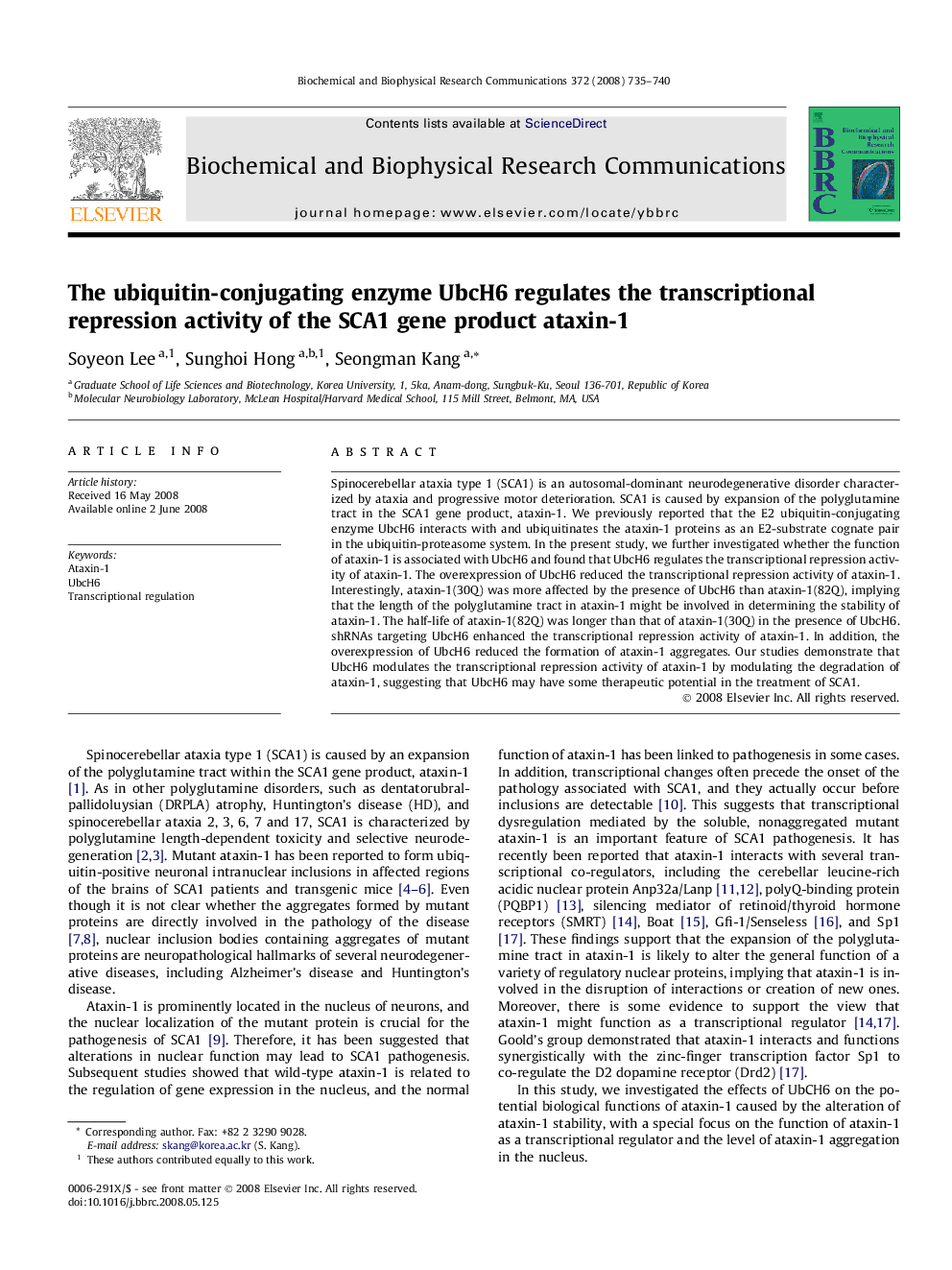| Article ID | Journal | Published Year | Pages | File Type |
|---|---|---|---|---|
| 1935350 | Biochemical and Biophysical Research Communications | 2008 | 6 Pages |
Spinocerebellar ataxia type 1 (SCA1) is an autosomal-dominant neurodegenerative disorder characterized by ataxia and progressive motor deterioration. SCA1 is caused by expansion of the polyglutamine tract in the SCA1 gene product, ataxin-1. We previously reported that the E2 ubiquitin-conjugating enzyme UbcH6 interacts with and ubiquitinates the ataxin-1 proteins as an E2-substrate cognate pair in the ubiquitin-proteasome system. In the present study, we further investigated whether the function of ataxin-1 is associated with UbcH6 and found that UbcH6 regulates the transcriptional repression activity of ataxin-1. The overexpression of UbcH6 reduced the transcriptional repression activity of ataxin-1. Interestingly, ataxin-1(30Q) was more affected by the presence of UbcH6 than ataxin-1(82Q), implying that the length of the polyglutamine tract in ataxin-1 might be involved in determining the stability of ataxin-1. The half-life of ataxin-1(82Q) was longer than that of ataxin-1(30Q) in the presence of UbcH6. shRNAs targeting UbcH6 enhanced the transcriptional repression activity of ataxin-1. In addition, the overexpression of UbcH6 reduced the formation of ataxin-1 aggregates. Our studies demonstrate that UbcH6 modulates the transcriptional repression activity of ataxin-1 by modulating the degradation of ataxin-1, suggesting that UbcH6 may have some therapeutic potential in the treatment of SCA1.
